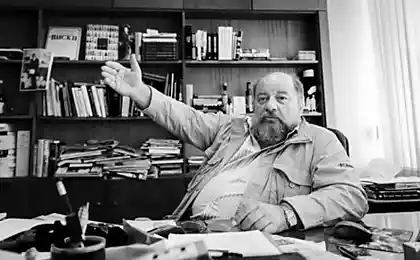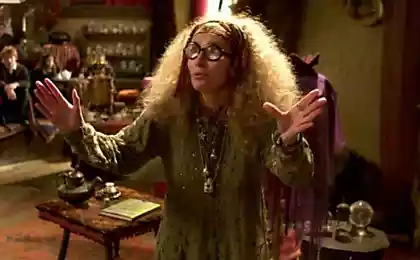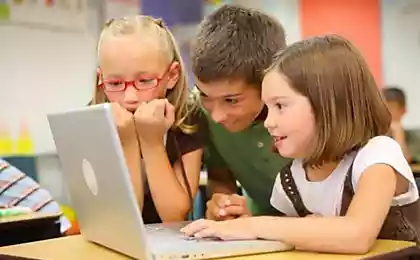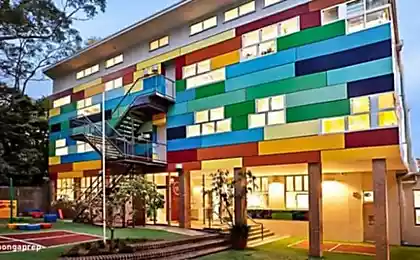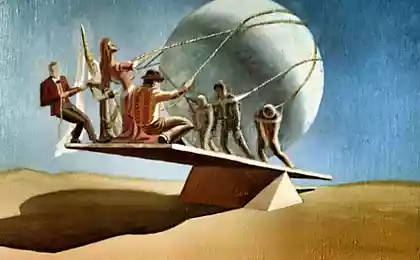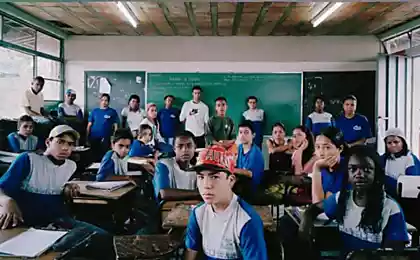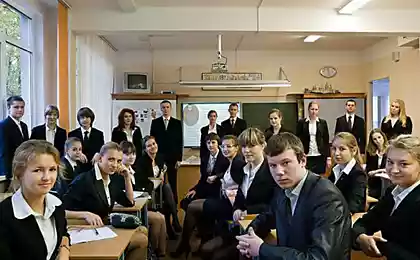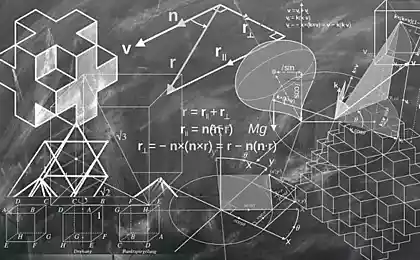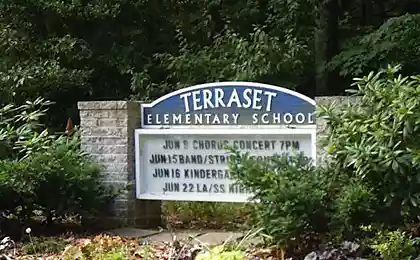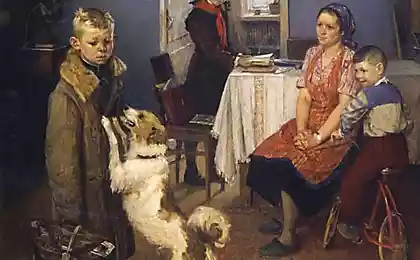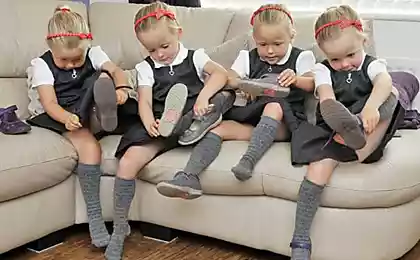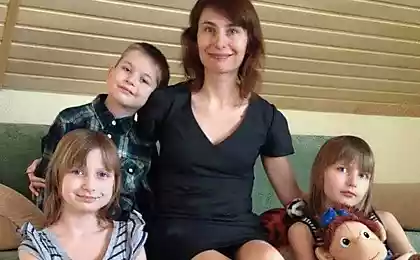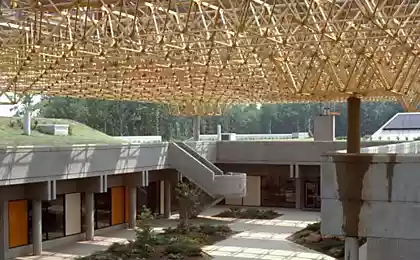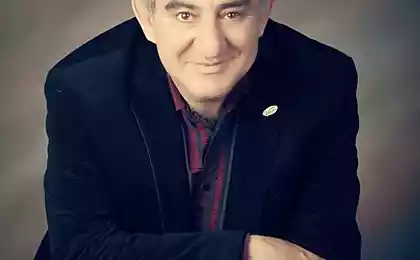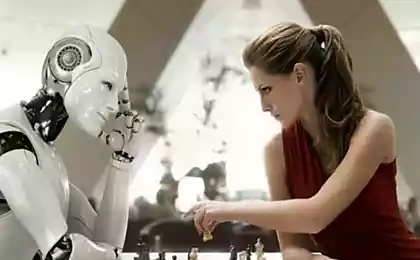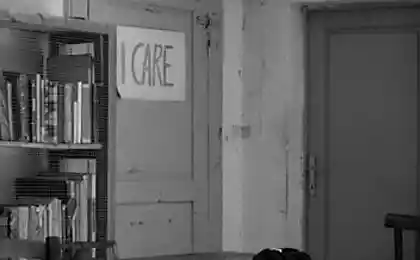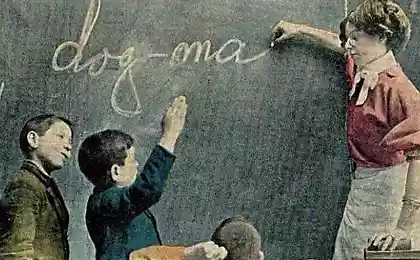613
School years unnoticed. Part two
Continuing the theme begun in the first part,Luggage storage children
I can already hear the reader's question: well, let all so what of it? Children don't need to teach anything – let them live with mitrofanushka? Long live ignorance?
A perfectly valid question, but before answering it, again I repeat: we are not talking about the excessive social costs of training, or its benefit for the future life, and on whether it occurs at all. The choice between the current school and the lack of any training – it is a choice between paid dearly ignorance and ignorance without any cost. In the end the American system of secondary education in our country is repeatedly berated, ridiculed and poured scorn orally and in print – actually represents a logical and coherent model of the school as Luggage storage children. Say, parents day on the job, to provide children themselves dangerous, and to socialize them as it is necessary – not on the street...
It is clear that in storage, by definition, the main requirement is security. And not only in the sense that terrorists have not attacked or tornado has not carried away, but above all not to hurt themselves and each other, has not acquired psychological trauma, not understated, God forbid, self-esteem. Out hypertrophied (from our point of view) security measures to an abundance of possibilities for sports (if we have the items such that they need to grow and to be physically active – let them run and jump, but according to the rules, i.e. no serious injuries) and a consistent relief programs and milder forms of control.

It comes to jokes: as recently revealed in the American public schools children are not taught the technique of division "in a column", as it "restricts their creativity". When looking at a school sometimes it seems that there actually would refuse any training, but I'm afraid that children get bored – and boredom easily gives rise to dangerous adventure, from sexy to pyrotechnic.
Here learning games, trips to museums (where the focus is on interactive exhibits, where you can steer some space fighter or, conversely, to try to make fire by friction) is what you need. Children are cheerful, happy, lively, and under supervision. If any of them contrary to expectation something to learn and remember, it will be very good, if not – not too scary.
Can over the school to laugh or despise her, or to be terrified that our schools are trying to copy, but it has clearly defined its function and executes it. And, by the way, nothing special with the cultural level of the nation have relied on a model that did not happen. It is often said that Americans can afford to be uneducated, because you can always admit to so many researchers, programmers or engineers, how many they will need.
This may be true, but it is unlikely, however, the bulk of the readers thriving in the U.S. the vast network of public libraries represent "Americans in the first generation." Or another example: in American magazines (not only scientific, but also General direction) in texts devoted to the achievements of science, there are phrases like "as you know, mitochondrial DNA is inherited only through the maternal line" or "as you know, the sequence number of a chemical element is equal to the charge of the nucleus of its atoms". Without any further explanation: it is assumed that such basic things are not know if all the readers of Newsweek, at least all who are interested in science news.
Higher than average
However, far be it from me to offer us public school as a model for Russia. Let's say we want our children to after mastering the basic skills of reading, writing and numeracy studied something else. The only question is why. And how to make them not only learned, but also learned.
I must say: no miracle recipe I don't know – and hardly anyone can currently offer an elaborate and detailed specific alternative so powerful and inertial Institute middle school. At best we can talk about the ways in which this alternative could be sought.
So the modern secondary school the bulk of his disciples never taught. And what is teaching? We have said that elementary and high school with their tasks more or less cope. You can argue about how this training is effective, as it corresponds to the present state of knowledge and the needs of society and a lot more about, but some knowledge – and not only the amount but also the system they give. How do they differ from high school?
The differences of the higher school are obvious: it does not aim at universal coverage for the entire generation. The supply of it is not only voluntary, but requires some effort (entrance exams). On the one hand, allows it to select those who have at least some degree focused on the study and on the other to further motivate them: man always appreciates above what he made the effort. But admission to the University does not guarantee a diploma – the graduate school reserves the right to further dropouts negligent and unfit, which further increases the motivation to learn.
The technology of learning at the University involves much greater independence of the student and its responsibility for the results – and this again means a very different value of the acquired knowledge. Finally, it is important that a school automatically implies specialization and their own choices. And it's not only not possible to teach more of the hated math-physics, or, on the contrary, the history.
The knowledge obtained in high school – special, they can stand out in the eyes of yesterday's classmates (except, of course, those that entered the same Institute). Moreover, a student, even a freshman, already knows something that you don't know his parents (unless he chose their profession), and showing them that knowledge, he feels their respect. While the student success always remains "knowledge is fun" – elders do not take them seriously, even if they themselves are unable to solve a quadratic equation or explain how reptiles are different from amphibians.
In this light, it is understandable timid attempts to make at least a high school "profile" (i.e., enter the primary specialization). I think that the rejection of the Chimera "compulsory universal average" (at least in the most mild form – the right school to get rid of students explicitly and systematically willing to learn) has significantly improved the situation. However, the applicability to the secondary school the principle of voluntary choice (which, note, does not take proper place in the high school – the vast majority of Russian universities, students still lack the opportunity to choose their subjects and teachers, as long since practiced in Western universities) is doubtful.
First, the 11-12-year-old man who comes to middle school from elementary, to put it mildly, is not ability to a responsible and conscious choice (note that any effect can only ionoobmennye choice – a choice made by parents or any other person may be much more reasonable, but does not add to student motivation to learn). But even if we somehow eliminate this difficulty, it rested to another: and on what basis the student must choose an educational programme?
What he knows about himself, about the society in which he will live and the knowledge? In order to decide if you need, say, trigonometry, you have to have about it at least some idea. And this returns us to the idea of universal education at the minimum compulsory set of knowledge needed to select the path for further study. It was supposed to give in today's society high school. She performs the function or not – in any case it is impossible to demand that the entrance to it that should come out of it.
How nice to be able to read
Try to go with the other hand: why effective elementary school? There's no specialization, no voluntariness or choice is and just it program remember best. The answer is obvious: the skills which it gives, the student then continuously coached – and not just for homework, but in their own lives and own purposes. Even hardened losers-repeaters sooner or later (usually long before school age) begin to read for pleasure. And it doesn't matter what they read – operation immediately acquires a very different motivation, and acquired by his skill becomes a lifetime.
It is the reading (not learning the rules) to a large extent, shapes and spelling skills. A grown man in his spelling practice almost never "follow the rules", and is guided by a graphical image of the word, which he has formed during life under the influence of reading, rewriting and independent writing.
If someone thinks that it applies only to bearers of so-called "automatic literacy" – let's remember the monstrous "-ti" in some written numerals numerals (up to speed "not more than 5"!) or ineradicable comma after "however" at the beginning of the phrase, never by any rules is not recommended, but successfully reproducing exactly written tradition of uneducated people and sometimes even pushing the literary norm.
Maybe the most typical example of the kind of afterlife apostrophe. As you know, in 1918 it was proposed to replace the hard sign, which was abolished in the reform of spelling and confiscated from the printing presses of red outfits. In 1956, the hard sign was reinstated, and apostrophe, on the contrary, abolished. However, to this day, on our doorways appear "Ob phenomena" written by people who learned to read (and often born) after the abolition of the apostrophe.
I happened to hear the view that in a private letter or a book you have to write "ad", but in the named document "Ob" phenomenon. To explain how to tackle such a strange rule, my interlocutors, of course, could not. But it is easy to guess: a lifetime in front of them were two parallel sample.
Comparative effectiveness of the reading skill and learning the rules is easy to see the correspondence. At the first acquaintance with the texts in forums and chat rooms they are striking in their ignorance. A closer look shows, however, that nobody writes "karova" or "paravoz" (except fashionable "padonskie" spelling, i.e. deliberate inaccuracies). Mass errors relate mainly to writing "no" and "no", continuous-separate writing prepositions and particles, single-double "n" in participles and adjectives, etc. – that is, to situations where two real common spellings need to choose the correct in this case. Here is a picture of the image will not get off – need to know the rule, and no one knows.
With the score all, of course, are somewhat more complicated – this process is not fraught with so much pleasure, how much independent reading (and therefore a quick mental calculation – the ability is quite rare, while a quick read, almost all). But the mechanism is the same: learning to count, the child immediately begins to apply this skill in their daily life (shopping, carve something, etc.), and immediately discovers that this skill is not only useful but also prestigious and socially acceptable.
Therefore, in certain limits account learn almost everything. But technology is more sophisticated calculations that are not encountered in the practice of the adolescent (e.g., square root or the already mentioned addition of fractions), sent directly to the same place and whole school mathematics.
And is it possible to avoid it? Can you teach advanced high school wisdom, just as the kids are taught writing and arithmetic – immediate release of "life", promising benefits, pleasure and social acceptance?
Handwritten knowledge mining
Once again: acting school, built on such principles, I have not seen (although some semblance of it can see, anyone in the yard, the Teens delve into old cars/motorcycles – often under the guidance of Amateur coach-adult). But I do know that at least one project this school exists.
It was developed by Vladimir Lantsberg (1948 – 2005), commonly known as the songwriter and leader of bard culture. Less well known is that Vladimir Isaakovich considered the main business of his life teaching, which involved very seriously. For many years he led the teen club in the village (education of such institutions differs from a school primarily because a child who is bored or something against the grain, may at any time not to go).
The experience of these clubs and formed the basis created by the author's school project. This project requires a separate discussion, but the basic idea is that the child first of all gets acquainted with the various crafts. First – as with the game, then when he learn to do something useful, he will have the motivation of a responsible person – cash, respect parents, etc. as soon as it will arise the need for theoretical knowledge, or just curiosity ("why is this thing even working?"), he will be taught and this (let us not forget that science itself has historically developed that way).
Found in the teenager's thirst for fundamental knowledge – he will get a good pre-University training. Not found – he's still at school will gain a good qualification in the sought-after craft, and maybe not in one. One of the guys from Linzergasse club for 14 – 15 years has become an indispensable expert in electronics: if in the clinic broke down the cardiograph, the young master ran through the whole village. This, of course, an exception, but it is something that proves the rule: the present case, real money and real respect for peers and adults almost flawlessly create a motivation to learn. And the knowledge obtained by hands and experienced emotionally, will never disappear.
I don't know how such a school is feasible – in principle, particularly now in the current Russian socio-cultural situation. I don't know how much it will cost, any personnel, premises, equipment require. I understand that its functioning will require constant violation of a whole heap of regulations and standards from the regulation of teaching time to the exploitation of child labor. I am not ready to swear that such an approach allows to teach the child everything. (In fact, how the profession should deal with the student that he needed a knowledge of history?) Lastly, I'm certainly not saying that this path is the only or at least best possible.
I just want to say that it is not necessary to continue to feed the child, to Moloch, giving nothing in return.published
Author: Boris Zhukov
P. S. And remember, just changing your mind — together we change the world! ©
Join us in Facebook , Vkontakte, Odnoklassniki
Source: stengazeta.net/?p=10002743
I can already hear the reader's question: well, let all so what of it? Children don't need to teach anything – let them live with mitrofanushka? Long live ignorance?
A perfectly valid question, but before answering it, again I repeat: we are not talking about the excessive social costs of training, or its benefit for the future life, and on whether it occurs at all. The choice between the current school and the lack of any training – it is a choice between paid dearly ignorance and ignorance without any cost. In the end the American system of secondary education in our country is repeatedly berated, ridiculed and poured scorn orally and in print – actually represents a logical and coherent model of the school as Luggage storage children. Say, parents day on the job, to provide children themselves dangerous, and to socialize them as it is necessary – not on the street...
It is clear that in storage, by definition, the main requirement is security. And not only in the sense that terrorists have not attacked or tornado has not carried away, but above all not to hurt themselves and each other, has not acquired psychological trauma, not understated, God forbid, self-esteem. Out hypertrophied (from our point of view) security measures to an abundance of possibilities for sports (if we have the items such that they need to grow and to be physically active – let them run and jump, but according to the rules, i.e. no serious injuries) and a consistent relief programs and milder forms of control.

It comes to jokes: as recently revealed in the American public schools children are not taught the technique of division "in a column", as it "restricts their creativity". When looking at a school sometimes it seems that there actually would refuse any training, but I'm afraid that children get bored – and boredom easily gives rise to dangerous adventure, from sexy to pyrotechnic.
Here learning games, trips to museums (where the focus is on interactive exhibits, where you can steer some space fighter or, conversely, to try to make fire by friction) is what you need. Children are cheerful, happy, lively, and under supervision. If any of them contrary to expectation something to learn and remember, it will be very good, if not – not too scary.
Can over the school to laugh or despise her, or to be terrified that our schools are trying to copy, but it has clearly defined its function and executes it. And, by the way, nothing special with the cultural level of the nation have relied on a model that did not happen. It is often said that Americans can afford to be uneducated, because you can always admit to so many researchers, programmers or engineers, how many they will need.
This may be true, but it is unlikely, however, the bulk of the readers thriving in the U.S. the vast network of public libraries represent "Americans in the first generation." Or another example: in American magazines (not only scientific, but also General direction) in texts devoted to the achievements of science, there are phrases like "as you know, mitochondrial DNA is inherited only through the maternal line" or "as you know, the sequence number of a chemical element is equal to the charge of the nucleus of its atoms". Without any further explanation: it is assumed that such basic things are not know if all the readers of Newsweek, at least all who are interested in science news.
Higher than average
However, far be it from me to offer us public school as a model for Russia. Let's say we want our children to after mastering the basic skills of reading, writing and numeracy studied something else. The only question is why. And how to make them not only learned, but also learned.
I must say: no miracle recipe I don't know – and hardly anyone can currently offer an elaborate and detailed specific alternative so powerful and inertial Institute middle school. At best we can talk about the ways in which this alternative could be sought.
So the modern secondary school the bulk of his disciples never taught. And what is teaching? We have said that elementary and high school with their tasks more or less cope. You can argue about how this training is effective, as it corresponds to the present state of knowledge and the needs of society and a lot more about, but some knowledge – and not only the amount but also the system they give. How do they differ from high school?
The differences of the higher school are obvious: it does not aim at universal coverage for the entire generation. The supply of it is not only voluntary, but requires some effort (entrance exams). On the one hand, allows it to select those who have at least some degree focused on the study and on the other to further motivate them: man always appreciates above what he made the effort. But admission to the University does not guarantee a diploma – the graduate school reserves the right to further dropouts negligent and unfit, which further increases the motivation to learn.
The technology of learning at the University involves much greater independence of the student and its responsibility for the results – and this again means a very different value of the acquired knowledge. Finally, it is important that a school automatically implies specialization and their own choices. And it's not only not possible to teach more of the hated math-physics, or, on the contrary, the history.
The knowledge obtained in high school – special, they can stand out in the eyes of yesterday's classmates (except, of course, those that entered the same Institute). Moreover, a student, even a freshman, already knows something that you don't know his parents (unless he chose their profession), and showing them that knowledge, he feels their respect. While the student success always remains "knowledge is fun" – elders do not take them seriously, even if they themselves are unable to solve a quadratic equation or explain how reptiles are different from amphibians.
In this light, it is understandable timid attempts to make at least a high school "profile" (i.e., enter the primary specialization). I think that the rejection of the Chimera "compulsory universal average" (at least in the most mild form – the right school to get rid of students explicitly and systematically willing to learn) has significantly improved the situation. However, the applicability to the secondary school the principle of voluntary choice (which, note, does not take proper place in the high school – the vast majority of Russian universities, students still lack the opportunity to choose their subjects and teachers, as long since practiced in Western universities) is doubtful.
First, the 11-12-year-old man who comes to middle school from elementary, to put it mildly, is not ability to a responsible and conscious choice (note that any effect can only ionoobmennye choice – a choice made by parents or any other person may be much more reasonable, but does not add to student motivation to learn). But even if we somehow eliminate this difficulty, it rested to another: and on what basis the student must choose an educational programme?
What he knows about himself, about the society in which he will live and the knowledge? In order to decide if you need, say, trigonometry, you have to have about it at least some idea. And this returns us to the idea of universal education at the minimum compulsory set of knowledge needed to select the path for further study. It was supposed to give in today's society high school. She performs the function or not – in any case it is impossible to demand that the entrance to it that should come out of it.
How nice to be able to read
Try to go with the other hand: why effective elementary school? There's no specialization, no voluntariness or choice is and just it program remember best. The answer is obvious: the skills which it gives, the student then continuously coached – and not just for homework, but in their own lives and own purposes. Even hardened losers-repeaters sooner or later (usually long before school age) begin to read for pleasure. And it doesn't matter what they read – operation immediately acquires a very different motivation, and acquired by his skill becomes a lifetime.
It is the reading (not learning the rules) to a large extent, shapes and spelling skills. A grown man in his spelling practice almost never "follow the rules", and is guided by a graphical image of the word, which he has formed during life under the influence of reading, rewriting and independent writing.
If someone thinks that it applies only to bearers of so-called "automatic literacy" – let's remember the monstrous "-ti" in some written numerals numerals (up to speed "not more than 5"!) or ineradicable comma after "however" at the beginning of the phrase, never by any rules is not recommended, but successfully reproducing exactly written tradition of uneducated people and sometimes even pushing the literary norm.
Maybe the most typical example of the kind of afterlife apostrophe. As you know, in 1918 it was proposed to replace the hard sign, which was abolished in the reform of spelling and confiscated from the printing presses of red outfits. In 1956, the hard sign was reinstated, and apostrophe, on the contrary, abolished. However, to this day, on our doorways appear "Ob phenomena" written by people who learned to read (and often born) after the abolition of the apostrophe.
I happened to hear the view that in a private letter or a book you have to write "ad", but in the named document "Ob" phenomenon. To explain how to tackle such a strange rule, my interlocutors, of course, could not. But it is easy to guess: a lifetime in front of them were two parallel sample.
Comparative effectiveness of the reading skill and learning the rules is easy to see the correspondence. At the first acquaintance with the texts in forums and chat rooms they are striking in their ignorance. A closer look shows, however, that nobody writes "karova" or "paravoz" (except fashionable "padonskie" spelling, i.e. deliberate inaccuracies). Mass errors relate mainly to writing "no" and "no", continuous-separate writing prepositions and particles, single-double "n" in participles and adjectives, etc. – that is, to situations where two real common spellings need to choose the correct in this case. Here is a picture of the image will not get off – need to know the rule, and no one knows.
With the score all, of course, are somewhat more complicated – this process is not fraught with so much pleasure, how much independent reading (and therefore a quick mental calculation – the ability is quite rare, while a quick read, almost all). But the mechanism is the same: learning to count, the child immediately begins to apply this skill in their daily life (shopping, carve something, etc.), and immediately discovers that this skill is not only useful but also prestigious and socially acceptable.
Therefore, in certain limits account learn almost everything. But technology is more sophisticated calculations that are not encountered in the practice of the adolescent (e.g., square root or the already mentioned addition of fractions), sent directly to the same place and whole school mathematics.
And is it possible to avoid it? Can you teach advanced high school wisdom, just as the kids are taught writing and arithmetic – immediate release of "life", promising benefits, pleasure and social acceptance?
Handwritten knowledge mining
Once again: acting school, built on such principles, I have not seen (although some semblance of it can see, anyone in the yard, the Teens delve into old cars/motorcycles – often under the guidance of Amateur coach-adult). But I do know that at least one project this school exists.
It was developed by Vladimir Lantsberg (1948 – 2005), commonly known as the songwriter and leader of bard culture. Less well known is that Vladimir Isaakovich considered the main business of his life teaching, which involved very seriously. For many years he led the teen club in the village (education of such institutions differs from a school primarily because a child who is bored or something against the grain, may at any time not to go).
The experience of these clubs and formed the basis created by the author's school project. This project requires a separate discussion, but the basic idea is that the child first of all gets acquainted with the various crafts. First – as with the game, then when he learn to do something useful, he will have the motivation of a responsible person – cash, respect parents, etc. as soon as it will arise the need for theoretical knowledge, or just curiosity ("why is this thing even working?"), he will be taught and this (let us not forget that science itself has historically developed that way).
Found in the teenager's thirst for fundamental knowledge – he will get a good pre-University training. Not found – he's still at school will gain a good qualification in the sought-after craft, and maybe not in one. One of the guys from Linzergasse club for 14 – 15 years has become an indispensable expert in electronics: if in the clinic broke down the cardiograph, the young master ran through the whole village. This, of course, an exception, but it is something that proves the rule: the present case, real money and real respect for peers and adults almost flawlessly create a motivation to learn. And the knowledge obtained by hands and experienced emotionally, will never disappear.
I don't know how such a school is feasible – in principle, particularly now in the current Russian socio-cultural situation. I don't know how much it will cost, any personnel, premises, equipment require. I understand that its functioning will require constant violation of a whole heap of regulations and standards from the regulation of teaching time to the exploitation of child labor. I am not ready to swear that such an approach allows to teach the child everything. (In fact, how the profession should deal with the student that he needed a knowledge of history?) Lastly, I'm certainly not saying that this path is the only or at least best possible.
I just want to say that it is not necessary to continue to feed the child, to Moloch, giving nothing in return.published
Author: Boris Zhukov
P. S. And remember, just changing your mind — together we change the world! ©
Join us in Facebook , Vkontakte, Odnoklassniki
Source: stengazeta.net/?p=10002743


